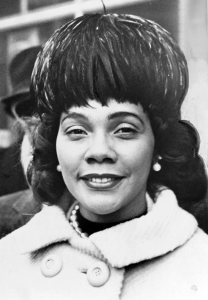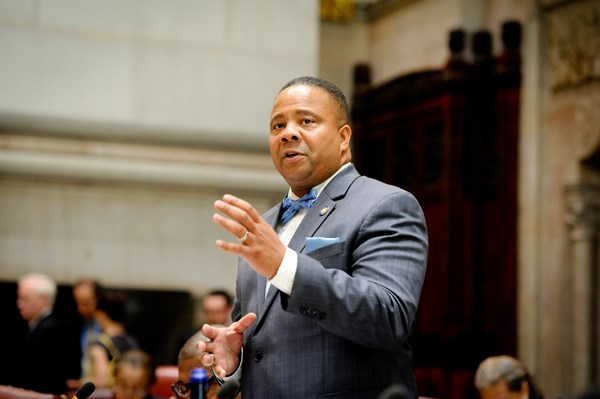
Those who seek elevation to high office must meet high standards — on judgment, on fairness, and in upholding values at our nation's core. Values like tolerance, mutual respect, and justice. Values that are what America stands for at its best. And values that are present in every part of the spirit of Dr. Martin Luther King Jr. Day.
In this moment, when we have been presented with numerous nominees for top leadership posts in our government, it is worth reflecting on those values. In the case of the nomination of Senator Jeff Sessions to be Attorney General of the United States, we have the words of Dr. King's widow, and civil rights advocate in her own right, Coretta Scott King to help guide us. In March of 1986, when Sessions was being considered by the Senate for a federal district court judgeship, King wrote a letter in opposition to his nomination.
King cites Sessions use of his office as U.S. Attorney "to intimidate and chill the free exercise of the ballot by citizens" and that his conduct "indicates that he lacks the temperament, fairness and judgment to be a federal judge." After citing the importance of the Voting Rights Act, King writes, "It has been a long up-hill struggle to keep alive the vital legislation that protects the most fundamental right to vote. A person who has exhibited so much hostility to the enforcement of those laws, and thus, to the exercise of those rights by Black people should not be elevated to the federal bench."
King rightly highlights as hard won and essential to our democracy. After all, the King family played an instrumental role in winning those battles and upholding the spirit of the legislation the Civil Rights Movement yielded. Sessions' conduct, King writes, "raises serious questions about his commitment to the protection of the voting rights of all American citizens and consequently his fair and unbiased judgment regarding this fundamental right."
America is still struggling with the challenge of upholding the rights so clearly articulated by the Civil Rights Movement, including the rights of people of color, women, the LGBTQ community, immigrant community, and including the right to vote. Just last year, voting rights cases emerged in North Carolina, Wisconsin, and Kansas. One federal judge found that "new [voter-ID] provisions target African Americans with almost surgical precision" and "impose cures for problems that did not exist." We need a Justice Department that will fight voter suppression and uphold the rights of every member of our diverse American community.
Someone who has intimidated and chilled access to a fundamental right for his fellow Americans, someone whose treatment of voters led some senior, African American Alabama voters to vow they would never vote again, someone whose appointment to a judgeship would — in King's words — "irreparably damage" the work of Dr. Martin Luther King Jr., does such a man deserve to be Attorney General? Can such a man be entrusted to seek out an affirm justice for communities endangered by prejudicial, discriminatory, or unjust treatment? Can such a man lead a Justice Department we need to continually uphold our constitutionally guaranteed rights?
The position of Attorney General demands a career-long record of not just speaking about our core values, but also being about our core values. King did not have confidence that Sessions could be about those values in 1986. I submit, the American people cannot have confidence that Sessions can be about those values today.




